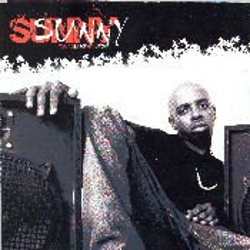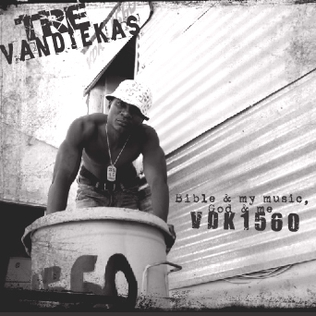The music of Namibia includes a number of folk styles, as well as pop, rock, reggae, jazz, house and hip hop.

Martin Morocky, known by his stage name as The Dogg, is a Namibian musician. Considered a Kwaito artist, his debut album, Shimaliw' Osatana, was released in 2004 to mixed reviews. The Dogg was part of the group Omalaeti O'Swapo, which released one album in 2004. His music is enjoyed internationally, in countries such as South Africa, Botswana, Angola, Zambia, and Zimbabwe. The Dogg has performed in France, England, and Canada. He has received awards and nominations from Channel O. He is one of the highest-awarded artists in his country, as well as one of the highest-selling. As of 2022, King Tee Dee has about 11 albums, where most of his songs are on livestream, and over 20 awards to his name, and he is the most-awarded musician in Namibia.

Mshasho Productions, also referred to as Mshasho Music Productions and Mshasho Records, is a Namibian Independent record label founded by Namibian musician and producer, Martin "The Dogg" Morocky in 2003. The company is a subsidiary of The Dogg's company Mshasho closed cooperation. The name Mshasho is derived from its original name Omushasho which is the Oshiwambo name for a shotgun. The label has shaped careers for artists such as Sunny Boy, OmPuff, Tre Van Die Kasie, TeQuila, Karlos Lokos, Chipolopolo, Richie and Kamasutra. The label has so far released ten albums, making it one of the leading record labels in the country.

Sunday Shipushu, known as Sunny Boy, is a Namibian rapper from Ongwediva. He performs a brand of music known as hikwa, which he engineered by fusing hip hop and Kwaito. He rose to fame after collaborating with Gazza on his song "Koko" in 2004. He increased his buzz with his hit single "Balance" in 2005 when he signed with Mshasho Productions.

Lazarus Shiimi, known by his stage name Gazza, is a Namibian musician.

Shimaliw' Osatana is the debut album by Namibian kwaito master The Dogg, released in February 2004 through RC-Ghetto Records. Shimaliw' Osatana was the first full length kwaito album released in Namibia. The album was immediately hailed as a masterpiece by several critics, and is today one of the most celebrated and influential albums in Namibia. Shimaliw' Osatana, established The Dogg as one of the most profound lyricists in Namibia, introducing his signature rough attitude style.

Take Out Yo Gun is the second album by kwaito star The Dogg, released in December 2004. The album has received many positive reviews from critics despite the fact that it was released the same year as Shimaliw' Osatana. Take Out Yo Gun was the first album to be released on The Dogg's own label Mshasho Productions. Gazza appeared on the album, The Dogg also appeared on Gazza's Zula II Survive which marked the end of their collaboration.

You Can't Ignore is the fourth album by The Dogg that was released on 5 October 2007 by Mshasho and KOOL Productions. The album was to be titled Mshasho: You Can't Ignore and was later changed prior to its release date. The album features the first collaboration between The Dogg and his music mentor Elvo. It also features the first collaboration between The Dogg and Qonja. This album is more mature and very different from his previous albums. It features a dark tone similar to his first release, Shimaliw' Osatana. The entire album is self-produced with DJ Kboz co-producing two songs. As of 2008, the album is the highest and fastest selling kwaito album in Namibia.

Introducing TeeDee is the third studio album by Namibian kwaito musician and producer The Dogg. It was released by Mshasho Productions in May 2006, and was the first to be managed by KOOL Productions. The album introduced his alias TeeDee to his fans. This album is a replacing recording for his bootlegged album Mshasho Mos! which was supposed to be released in December 2005. Introducing TeeDee include revised songs which were intended to be released on the bootleg album. The album's first single "Baby Don't Go" released in 2005 was very successful in the Southern African region and its video won the award for best newcomer at the 2007 Channel-O Spirit of Africa Music Video Awards.

Young, Black en Gifted, commonly referred to as Y.B.G., is Sunny Boy's debut album, released in December 2005 after he was signed to Mshasho Records in 2004. Young, Black en Gifted boosted Sunny's commercial popularity, thus making him a common household name among mainstream music fans. The album also established Sunny as one of the most profound lyrics in Namibia. Most of the tracks features a fusion of hip hop and kwaito. Production comes from The Dogg, Elvo and DJ Kboz.

Elai Lineendunge is the second album by Namibian rapper Sunny Boy, and the first to be released on his own label GreenHouse Entertainment. It was released in December 2006. The album features a much darker sound and much deeper subject matter than, Young, Black en Gifted. It moved away from the mainstream original type of kwaito, used on Young, Black en Gifted and albums done by Gazza and The Dogg, to a hip hop type of kwaito that Sunny describe as hikwa. This style has become influential and has seen Gazza, Qonja, Chipolopolo, Exit & Mushe and many other new Namibian kwaito artist experimenting with it.

Bible and My Music, God & Me is the debut album by Namibian rapper Tre Van Die Kasie. The album features production from The Dogg, Elvo and DJ Kboz. Prior to its release, the album became most anticipated, due to its long-time delay. The media praised the album's composition and structure, but criticise it for its poor marketing and promotion. It was accompanied by no video and lacked a professional radio single. Although When I’m Gone managed to chart, it was the only successful single from the album.

Zula II Survive is the second album by the Namibian kwaito artist Gazza. The album was more kwaito than his previous release, Tanauka, and until today is considered Gazza's best album. Zula II Survive together with The Dogg's Shimaliw' Osatana and Take Out Yo Gun are considered the first albums to have shaped the Namibian kwaito genre. The album also introduced Sunny Boy to the music industry. "Koko", "KKN" and "Zula II Zula" are the album's biggest hits.

This is a discography of albums by Namibian musician The Dogg. The Dogg began his professional music career in 2003. He released two solo studio albums in 2004.

The Sleeping Giant is the third studio album by Namibian rapper Sunny Boy. It was released on Sunny's new label Yaziza Entertainment in December 2008. The album features production from Namibia's top producers such as Elvo, The Dogg, Kboz, Morgan, and B-Phill. It features appearance from Qonja, Jericho, Hedek, Tre VDK, Nasti, Jossy Joss, TeQuila, Lady May, Luvy, Vanessa, Lokos, and Chipoloplo.

This Is My Time is The Dogg's fifth studio album release by Mshasho Records. It was set for release on 16 October 2008, but was moved up to 30 November and later moved to 3 April 2009. The album is the first Dogg album to receive a Team Namibia sticker. The album features appearance by Gal Level, Sunny Boy, Qonja, Elvo, Jericho, Dixon, Ricardo, Nasti, OmPuff and Tre. The entire album is self produced.
Mshasho Clothing is a Namibian clothing brand founded by Martin "The Dogg" Morocky. The company is 100% owned by Mshasho closed corporation operating as a subsidiary. The name Mshasho is derived from its original name Omushasho which is the Oshiwambo name for a shotgun.
The Namibian Annual Music Awards (NAMA) ceremony was the biggest awards ceremony in Namibia. It was established in 2011 by MTC Namibia and the Namibian Broadcasting Corporation (NBC). They would award a NAMA trophy to musicians in recognition of their outstanding achievements in the music industry of Namibia. Along with the trophy, musicians receive sponsorships, endorsement deals and cash prizes.

The Deception is the seventh studio album by Namibian kwaito star The Dogg. The album is released by The Dogg's Mshasho Productions on 2 July 2011. The album features international artists such as South African kwaito star Brickz and Zambian singer JK.
David Shikalepo, popularly known by his stage name as Exit, is a Namibian musician. He is considered as a kwaito artist. Moreover, he was awarded the best kwaito and male artist of the year at Namibians Annual Music Awards (NAMAs) awards in the year 2018.














